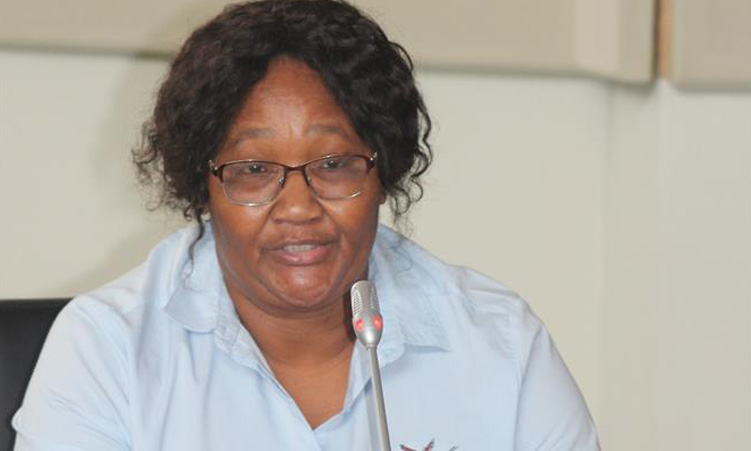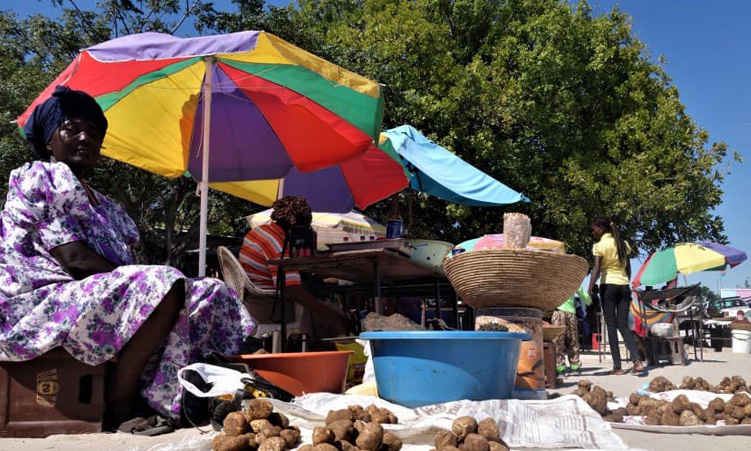The Erongo region’s education system is battling an ever-growing learner population and inadequate infrastructure.
Erongo director of education Erenfriede Stephanus says the region’s pupil population has surged by 5% in one year – from 53 538 in 2023 to 56 313 in 2024.
She said this during a regional consultation at Swakopmund on Monday between deputy minister of education, arts and culture Faustina Caley and education stakeholders.
Despite this increase of 2 775 pupils, the number of teachers has only marginally risen by 1%, with 23 additional teachers bringing the total to 2 019.
“We are witnessing a rapid increase in student numbers, but our resources, particularly teaching staff, are not keeping pace,” Stephanus said.
She highlighted the deplorable state of educational infrastructure.
A significant portion of the region’s school facilities, particularly hostels, is in disrepair, she said.
Out of 26 hostels in the region, 14 are government-owned, with the remaining 12 being subsidised or not subsidised at all.
Two hostels, Haus Romi and Hofmeyer Hostel at Swakopmund, have already been closed due to their dilapidated state and another, Ernst Rumpf Hostel, is on the brink of closure.
Many schools are struggling with insufficient classrooms and outdated facilities. While 51 new classrooms and nine ablution blocks have been constructed since last year, this does not meet the needs of the growing student population, Stephanus said.
There are several ongoing projects, including the construction of 24 more classrooms at schools at Walvis Bay and Henties Bay.
Furthermore, the lack of functional computers in libraries and community learning and development centres hampers effective learning.
Water scarcity in rural schools further exacerbates the situation, particularly in the Omaruru area, she said.
“These challenges are crippling our ability to provide quality education,” Stephanus said.
The region’s education sector is also facing a critical shortage of staff across various divisions.
Key positions remain unfilled due to budget constraints and delays in the recruitment process.
High staff turnover, particularly in the human resources division, adds to the strain – much of this being ascribed to stress.
“We need psychological support,” the director urged.
Stephanus said the recruitment process is “plagued by delays at every level, leaving crucial positions vacant and increasing the workload on the few existing staff members”.
She called for urgent intervention.
“We need adequate additional funding to renovate dilapidated hostels and schools. Without this, our pupils will continue to suffer,” she said.
Erongo governor Neville Andre emphasised the critical need for collective action to address challenges.
He suggested several initiatives, including continuous professional development for educators, enhanced support programmes and stronger parental involvement.
“We need to focus on interventions for struggling pupils, including after-school programmes and additional tutoring,” he said.
Andre stressed the importance of infrastructure improvements, calling for upgraded school facilities.
Caley this week told The Namibian: “The challenges are not few. They are many and addressing them requires a collective effort.”
She emphasised the importance of stakeholder involvement.
Caley acknowledged the difficulty of balancing the needs of a growing population with the existing backlog in infrastructure and classroom shortages.
“Tackling both sides is not easy,” she said.
Stay informed with The Namibian – your source for credible journalism. Get in-depth reporting and opinions for
only N$85 a month. Invest in journalism, invest in democracy –
Subscribe Now!






